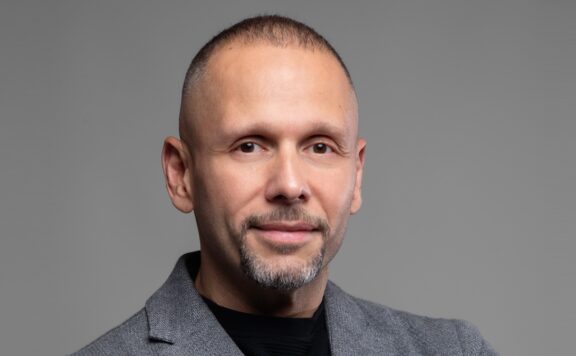Suresh Sambandam, CEO, Kissflow, talks about his journey as an entrepreneur, his SaaS Boomi initiative and offers suggestions for those aspiring to achieve big in the world of technology.
Can you describe your journey as an entrepreneur from the beginning to where you are now to our readers briefly?
At the onset of my journey as a tech entrepreneur, I subscribed to a belief that many budding tech entrepreneurs follow even today – that if you build a great product, customers will clamour to buy it. It took about three years for me to recognise that in actuality, organisations only perceive technology to be a means to an end. They aren’t interested in the solution itself, but rather, are concerned primarily with solving a specific business challenge.
Realising this, I shifted my thinking and pivoted from the ‘tech entrepreneur’ mindset to wanting to address the market problem. This was a big shift that meant a deep dive into understanding the challenge that our target customers faced, and developing our solution to address this in the most effective way.
This led us to pioneering Low-code No-code – a domain in which we remain a market leader – and laying the groundwork for Kissflow to become the global organisation it now is. Even today, if you observe the Low-code market, we remain differentiated from our competitors. Their focus is on helping IT developers increase productivity using Low-code, while ours is built around empowering citizen developers to create powerful applications in an intuitive manner.
For our customers, the benefits of this aren’t incremental, they’re exponential. The democratisation of IT is a paradigm shift that changes the very way in which organisations operate. This is ultimately at the heart of my entrepreneurial journey – discovering a path that no one else has travelled, and developing unique solutions that help make the world a better place.
How have you seen entrepreneurial opportunities evolve over the past decade?
We are undoubtedly in a Golden Era of entrepreneurship. I see this in countries such as India, the UAE and many more where the establishment of new businesses is increasing by 2x, 3x and in some cases even 10x year-on-year.
There are two primary factors that I believe are enabling this revolution. First, the entry point to technological innovation is constantly being reduced. Technology is becoming more accessible even to companies at a very small scale. Combine this with capital also becoming more accessible and you have the perfect condition for an explosion of entrepreneurship.
Whereas before, companies needed to get to a scale of 500-1,000 employees to serve a sufficiently impressive customer base, today agile teams of just a few employees can draw in significant revenues. And with the advent of AI, this ability for nimble teams to be highly productive and profitable will only increase further.
What according to you are the various challenges that entrepreneurs now face globally and how can they push forward?
The fundamental challenge for early-stage entrepreneurs hasn’t changed in aeons. Budding founders still struggle with clearly defining their ideal customer profile, clearly articulating the problem this target group faces, and then effectively fulfilling their needs with a solution that offers a compelling value proposition. This remains the number one challenge, as well as the most important factor for success for entrepreneurs.
Once they cross this chasm and enter the phase of being an early-growth company, other familiar challenges emerge. These include raising capital, hiring and retaining the right talent, remaining competitive, and consistently growing the business.
An entrepreneur’s initial life is full of ups and downs, how according to you should a budding entrepreneur handle both success and failure?
Personally, I’ve always prioritised happiness over success. There’s a fundamental difference in how you set about achieving these objectives.
For most part, success is defined by external parties. Society sets the metrics and assesses performance against these. And the goalpost keeps shifting. Just looking to the recent past, there was a time when building a million-dollar company was considered being successful. This evolved to having to build a 100-million-dollar company, and then a unicorn and so on. It’s something that will keep progressing in this manner.
On the other hand, happiness is something that’s incredibly personal and unique to each entrepreneur and individual. I personally use my happiness index to overcome the ebbs and flows of performance per the traditional success metrics. When you align your work with the first principles of your personal happiness index, then you start focusing on things that make you happy on a daily basis. I have found success to be an outcome rather than the objective of this mindset.
With AI breaking the glass ceiling for many complex scenarios, how can budding entrepreneurs look to encash it to transform everyday life?
I believe that everyone, from entrepreneurs to salaried employees, needs to take a deep dive into AI. It’s an incredibly powerful tool that should not be ignored.
This of course requires us to avoid the knee jerk reaction of feeling threatened by AI. We simply need to look to past experience to find reassurance – there were fears that accountants would be made redundant by calculators, or that clerical jobs would be replaced by computers. But today both these professions continue to thrive.
So too will be the case with AI. Yes, we can expect some jobs to be replaced, but at the same time, as entirely new capabilities are unlocked, entirely new professions and jobs will emerge.
For entrepreneurs, I would advise adopting an AI-first mindset, just as how a decade ago, visionaries adopted a mobile-first approach. When vetting their ideas, entrepreneurs should consider how these would play out in an AI world.
With many reforms being rolled out in the UAE to support entrepreneurs, how conducive is the UAE for initiating a startup?
On my last visit to Dubai, I was highly impressed and even posted on social media that my sense of the business ecosystem in the UAE is reminiscent of countries such as the USA where entrepreneurs are empowered to thrive. The social set up is such that it primes entrepreneurs and businesses for success. Sweeping socio-economic reforms made in recent years clearly align the country with global best practices with the aim of making the business environment as favourable and attractive as possible. With the government aiming to encourage the uptake of AI, blockchain, sustainability technologies and more, we are sure to see innovative start-ups capitalise on the incredible opportunity for growth that’s possible in the UAE.
Can you elaborate on your SaaS Boomi initiative?
SaaS Boomi is a thriving community that has been built by founders of leading SaaS organisations in India. The intention is for the group as a collective to learn from the experiences, playbooks, shortcomings, and successes of its individual members.
Because information is shared by trusted peers who operate within the same market context, it is far more valuable than referring to third party materials such as blogs, whitepapers and so on. This community promotes peer learning and engagement guided by the ‘pay-it-forward’ ethos.





